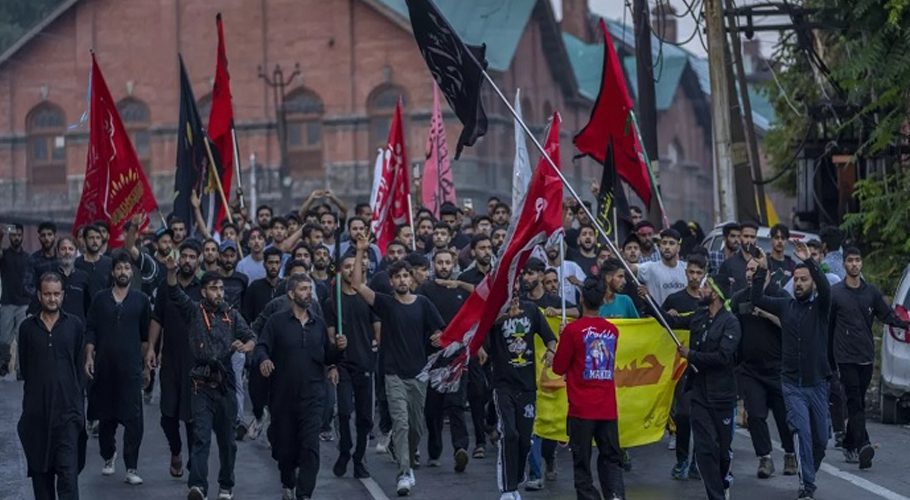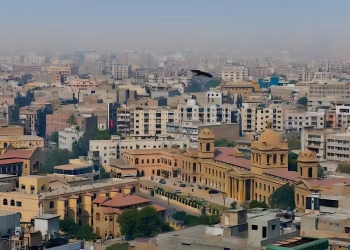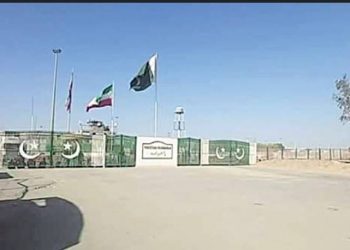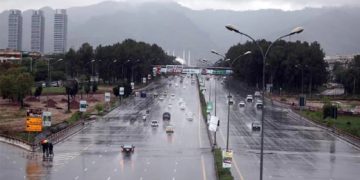After over three decades, thousands of Shia Muslims in India-held Kashmir participated in a procession to commemorate the eighth day of Muharram, the first month of the Islamic lunar calendar.
Clad in traditional black attire, the mourners expressed their grief by beating their chests and chanting elegies as they walked through the heart of Srinagar, the region’s main city, on Thursday morning, under tight security arrangements.
Muharram is a sacred month in Islam, during which Muslims worldwide hold processions to mourn the martyrdom of Husayn Ibn Ali al-Hussein, the grandson of Prophet Muhammad, who was killed in the Battle of Karbala in 680 AD, present-day Iraq.
This year’s procession took place after a 34-year ban, which was imposed in 1989 when a popular rebellion against New Delhi’s rule began in India-held Kashmir. The region of Kashmir is a disputed territory claimed by both India and Pakistan, and the longstanding conflict has seen numerous casualties and disappearances.
While the restoration of the procession was welcomed by many, some Shia leaders criticized it as an attempt by the ruling Bharatiya Janata Party (BJP) to project normalcy in the region, despite the curtailment of freedom of expression and other rights. Authorities placed conditions on the procession, prohibiting any anti-establishment speeches or propaganda. Shia community leaders argued that such conditions took away the soul of the procession, which should stand for truth and justice.
Despite the differences in opinions, the procession was carried out peacefully, demonstrating the community’s commitment to a peaceful and prosperous future for the disputed region. Ashura, the 10th day of Muharram, which holds significance for both Sunni and Shia Muslims, is approaching on Saturday, marking the day when Nuh (Noah) left the ark and Musa (Moses) was saved from the pharaoh of Egypt.




















![Crown Prince of Iran, Reza Pahlavi visit Western Wall (Wailing Wall) in east Jerusalem on April 18, 2023 [Ariel Zandberg (GPO) / Anadolu Agency]](https://mmnews.tv/wp-content/uploads/2025/06/Reza-Pahlavi-visits-Israel-and-prays-at-the-Western-Wall-350x250.jpg)













